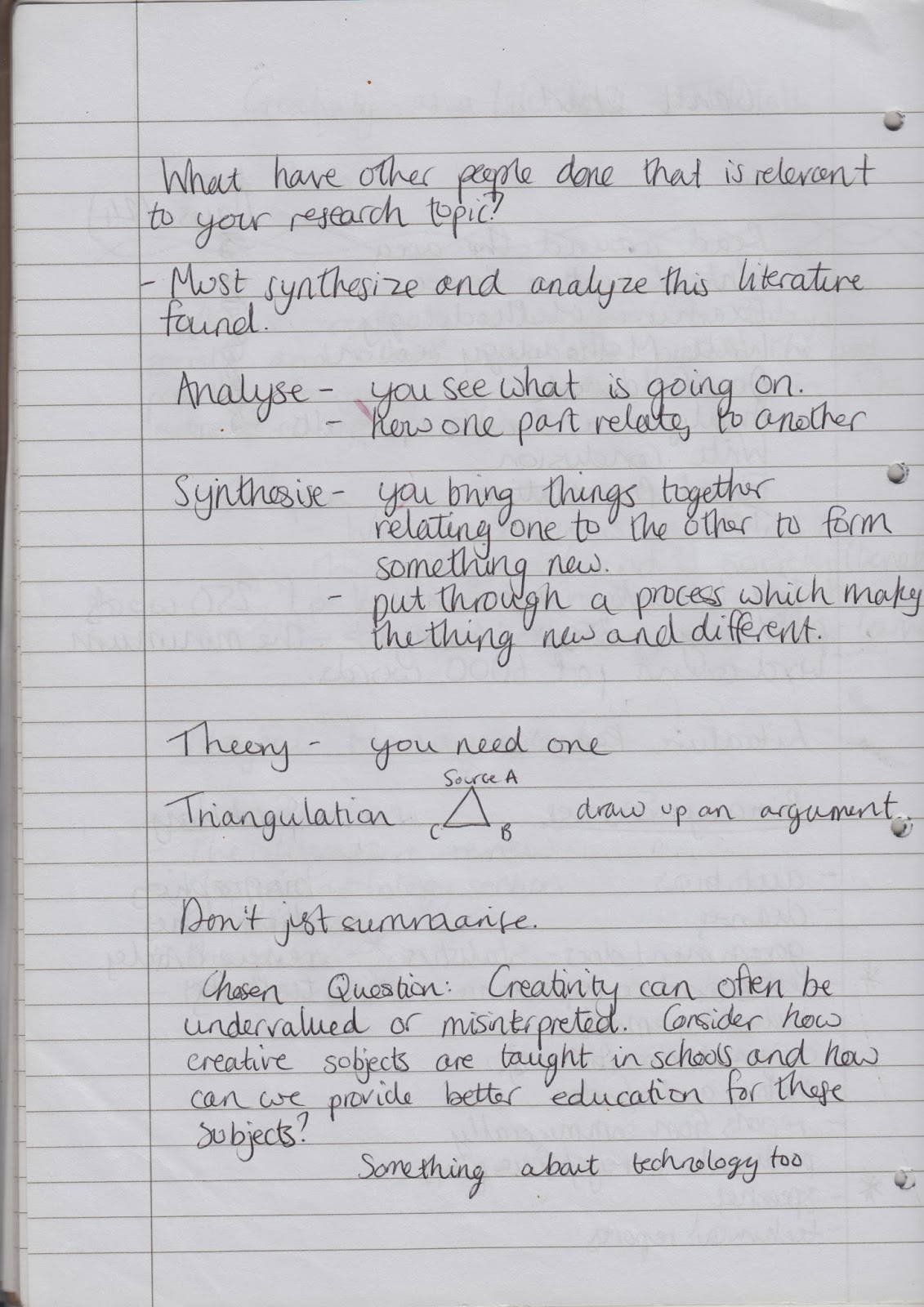This website (scottish curriculum) has information about Game Based Learning
http://www.educationscotland.gov.uk/usingglowandict/gamesbasedlearning/index.asp
Sunday 22 December 2013
Government Curriculum
Looking into the curriculum for years 2014-2015 to see how creative subjects are catered for. It is still down to the teacher to come up with lesson plans but it is not their decision which subjects get more attention. There is still a strong focus on literacy and numeracy which I don't believe is wrong but there is not much said in the curriculum guidelines at all about creativity or creative subjects.
If this is the case, I intend to promote teachers to teach their maths, english, history, p.e lessons in a a more fun and creative way. In the early years I believe this happens more than later in primary school and secondary school.
National Curriculum Framework
Key Stages 1-4
England
https://www.gov.uk/government/publications/national-curriculum-in-england-framework-for-key-stages-1-to-4/the-national-curriculum-in-england-framework-for-key-stages-1-to-4
In Scotland in 2010-11, the Curriculum for Excellence was introduced.
The Curriculum wishes its pupils to become 'successful learners, confident individuals, responsible citizens and effective contributors.'
The curriculum gives teachers more flexibility with how and what they teach
It also allows for children who are progressing quicker than others to move onto the next level of study before other classmates
'Scotland's curriculum for 3-18 is designed to provide young people with the knowledge, skills and attributes they need for learning, life and work in the 21st century.' [http://www.educationscotland.gov.uk/thecurriculum/]
Good Websites for this:
http://www.bbc.co.uk/scotland/learning/curriculum_for_excellence.shtml
If this is the case, I intend to promote teachers to teach their maths, english, history, p.e lessons in a a more fun and creative way. In the early years I believe this happens more than later in primary school and secondary school.
National Curriculum Framework
Key Stages 1-4
England
https://www.gov.uk/government/publications/national-curriculum-in-england-framework-for-key-stages-1-to-4/the-national-curriculum-in-england-framework-for-key-stages-1-to-4
In Scotland in 2010-11, the Curriculum for Excellence was introduced.
The Curriculum wishes its pupils to become 'successful learners, confident individuals, responsible citizens and effective contributors.'
The curriculum gives teachers more flexibility with how and what they teach
It also allows for children who are progressing quicker than others to move onto the next level of study before other classmates
'Scotland's curriculum for 3-18 is designed to provide young people with the knowledge, skills and attributes they need for learning, life and work in the 21st century.' [http://www.educationscotland.gov.uk/thecurriculum/]
Good Websites for this:
http://www.bbc.co.uk/scotland/learning/curriculum_for_excellence.shtml
Wednesday 18 December 2013
Thursday 12 December 2013
COP3 // Resolving your Research Project
Try and think of a plan to get through and maximise your efforts in the next and final 5 weeks.
Getting Stuck
Process
This is how I feel about being stuck > This is what I'm really stuck with > Being 'unstuck' would look like this > What actions could be taken to get there? > In what timescale > Do the action!
Plan and break down the next 5 weeks and force yourself to stick to it.
Losing Focus
Prioritse, at this stage it is about making the points, not necessarily what it looks like.
Project Self Assessment
Running out of time
Support all of your assertions with references and evidence
support your text with lots of sources
introduce each chapter with a brief statement telling the reader what you are setting out to do and how the chapter fits in with the question
conclude each chapter by stating what you have achieved and how it links with the next part
Getting Stuck
- Ask yourself why are you really stuck
- Avoid negativity
- Picture what being 'unstuck' would look like
Process
This is how I feel about being stuck > This is what I'm really stuck with > Being 'unstuck' would look like this > What actions could be taken to get there? > In what timescale > Do the action!
Plan and break down the next 5 weeks and force yourself to stick to it.
Losing Focus
- Don't lose sight of your central goal/ overall question
- Prioritse - don't obsess over how things look or read
- Keep in the back of your mind your topic / question
- What is the central aim/ purpose?
Prioritse, at this stage it is about making the points, not necessarily what it looks like.
Project Self Assessment
- Write down the major aims of the project
- Give a brief summary of the work so far
- Comment on your time management
- Do you know what the project as a whole will look like?
- What steps will you take to ensure it gets there?
- What areas of the project are you worried about?
- What 'risk management' plans do you have? - have a plan B
- set yourself a goals, some sort of a target to head towards rather than feeling forced to do it because of LCA.
Running out of time
- be more disciplined than ever
- don't prioritse the practical over the written
- look again at your question or theme, have you done what you set out to do or do you need to change your title? a slight change in direction
- make sure everything in your project relates to your title/question or theme (if you have wandered off on a tangent you may be penalised)
Support all of your assertions with references and evidence
support your text with lots of sources
introduce each chapter with a brief statement telling the reader what you are setting out to do and how the chapter fits in with the question
conclude each chapter by stating what you have achieved and how it links with the next part
Subscribe to:
Posts (Atom)























